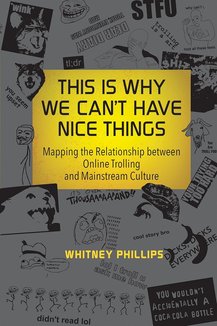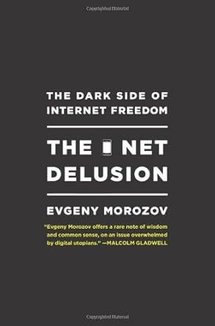Recommended Books

Civilization and Its Discontents
Authors:
Christopher Hitchens
,
Sigmund Freud
,
James Strachey
,
Peter Gay
ISBN 13:
978-0393304510
Freud’s seminal volume of twentieth-century cultural thought grounded in psychoanalytic theory, now with a new introduction by Christopher Hitchens. Written in the decade before Freud’s death, Civilization and Its Discontents may be his most famous and most brilliant work. It has been praised, dissected, lambasted, interpreted, and reinterpreted. Originally published in 1930, it seeks to answer several questions fundamental to human society and its organization: What influences led to the creation of civilization? Why and how did it come to be? What determines civilization’s trajectory? Freud’s theories on the effect of the knowledge of death on human existence and the birth of art are central to his work. Of the various English translations of Freud’s major works to appear in his lifetime, only Norton’s Standard Edition, under the general editorship of James Strachey, was authorized by Freud himself. This new edition includes both an introduction by the renowned cultural critic and writer Christopher Hitchens as well as Peter Gay’s classic biographical note on Freud.

This Is Why We Can't Have Nice Things: Mapping the Relationship between Online Trolling and Mainstream Culture (Mit Press)
Author:
Whitney Phillips
ISBN 13:
978-0262529877
Why the internet troll problem is actually a culture problem: how online trolling fits comfortably within today’s media landscape. Internet trolls live to upset as many people as possible, using all the technical and psychological tools at their disposal. They gleefully whip the media into a frenzy over a fake teen drug crisis; they post offensive messages on Facebook memorial pages, traumatizing grief-stricken friends and family; they use unabashedly racist language and images. They take pleasure in ruining a complete stranger’s day and find amusement in their victim’s anguish. In short, trolling is the obstacle to a kinder, gentler Internet. To quote a famous Internet meme, trolling is why we can’t have nice things online. Or at least that’s what we have been led to believe. In this provocative book, Whitney Phillips argues that trolling, widely condemned as obscene and deviant, actually fits comfortably within the contemporary media landscape. Trolling may be obscene, but, Phillips argues, it isn’t all that deviant. Trolls’ actions are born of and fueled by culturally sanctioned impulses—which are just as damaging as the trolls’ most disruptive behaviors. Phillips describes the relationship between trolling and sensationalist corporate media—pointing out that for trolls, exploitation is a leisure activity; for media, it’s a business strategy. She shows how trolls, “the grimacing poster children for a socially networked world,” align with social media. And she documents how trolls, in addition to parroting media tropes, also offer a grotesque pantomime of dominant cultural tropes, including gendered notions of dominance and success and an ideology of entitlement. We don't just have a trolling problem, Phillips argues; we have a culture problem. This Is Why We Can't Have Nice Things isn’t only about trolls; it's about a culture in which trolls thrive.
Find on:
 Amazon
Amazon

The Net Delusion: The Dark Side of Internet Freedom
Author:
Evgeny Morozov
ISBN 13:
978-1586488741
“The revolution will be Twittered!” declared journalist Andrew Sullivan after protests erupted in Iran in June 2009. Yet for all the talk about the democratizing power of the Internet, regimes in Iran and China are as stable and repressive as ever. In fact, authoritarian governments are effectively using the Internet to suppress free speech, hone their surveillance techniques, disseminate cutting-edge propaganda, and pacify their populations with digital entertainment. Could the recent Western obsession with promoting democracy by digital means backfire? In this spirited book, journalist and social commentator Evgeny Morozov shows that by falling for the supposedly democratizing nature of the Internet, Western do-gooders may have missed how it also entrenches dictators, threatens dissidents, and makes it harder—not easier—to promote democracy. Buzzwords like “21st-century statecraft” sound good in PowerPoint presentations, but the reality is that “digital diplomacy” requires just as much oversight and consideration as any other kind of diplomacy. Marshaling compelling evidence, Morozov shows why we must stop thinking of the Internet and social media as inherently liberating and why ambitious and seemingly noble initiatives like the promotion of “Internet freedom” might have disastrous implications for the future of democracy as a whole.